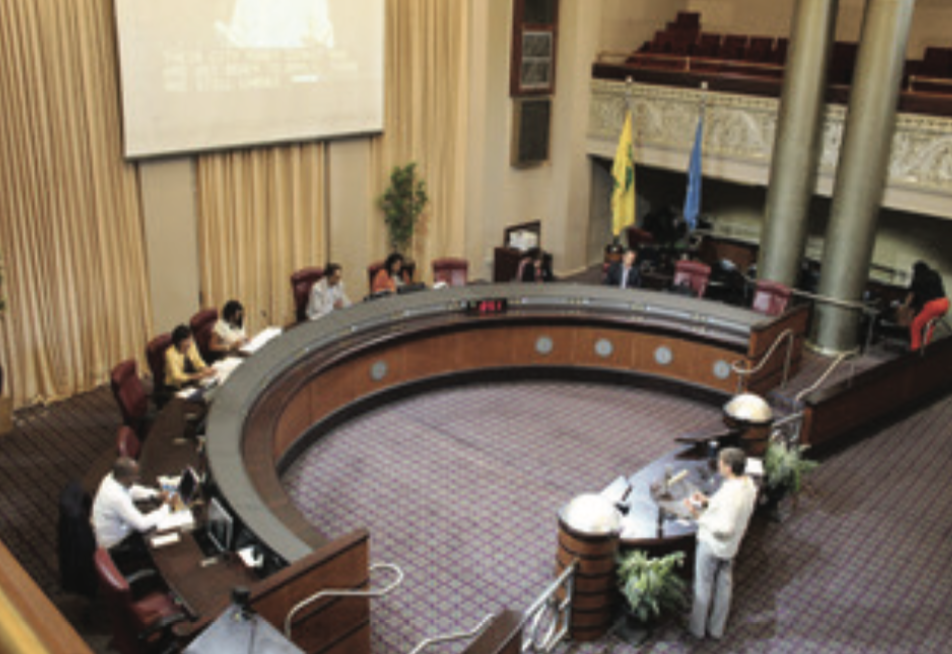
An Oakland City Council meeting was held Oct. 22 to discuss the economic development efforts affecting future plans for affordable housing. Community members and directors of local organizations such as the East Bay Housing Organization (EBHO) were especially fervent for the release of the city’s financial records and audit.
The release of the audit would indicate the total accumulated impact fees which provide funding for nonprofit developers such as EBHO to begin building affordable housing units. Prolonged plans to create housing has been an ongoing concern for nonprofit developers offering to begin construction.
Back in 2014, Mayor Libby Shaaf ran on a platform to address the lack of available affordable housing in Oakland. Her impact fee policy for affordable housing would fine private developers a minimum fee of $5,000 per unit, once they filed their building permits.
“The city’s impact fee which went into effect 3 years ago, should be generating tens of millions of dollars. Yet we’ve been told for months that an audit is underway to determine how much has been collected, where the money’s gone, and who’s been exempted,” EBHO policy director Jeff Levin said. “We were just told last week that the audit has barely started and will not be completed until spring of 2020.”
Levin continued to address the council, recognizing that the city should have collected at least $25 million when the building permits were issued. Another $25 million would be collected at a later point.
So far, records indicate only $8 million in fees have been collected. The lack of effort to collect and utilize the impact fees also affects the city’s competitive place to receive state funding. California created a housing grant budget consisting of $1.7 billion for cities needing support for the development of affordable housing projects.
“Oakland projects are ineligible for this funding because we do not have local support for them,” Associate Director of Real Estate Development of the East Bay Asian Local Development Corporation Ener Chu stated. “These impact fees were supposed to go to local support and help Oakland projects become more competitive for this amount of money.”
The level of state funding would have provided some relief for increased impact fees placed on local private developers in the long term. Without the city’s ability to financially leverage state allocations, more emphasis is placed on local profit.
“The money after this quarter trails off significantly down from $1.7 billion into just the hundreds of millions,” Chu said. “Take that as a sense of urgency, just from the production side of affordable housing.”
Research conducted on impact fees at the University of California, Berkeley showcases the value of transparency for policymakers and developers at The Terner Center.
In their 2019 study “Residential Impact Fees in California,” university researchers found that “impact fee implementation in cities and counties across California found that greater fee transparency could help shed light on often obscure fee stacks, lowering risk for developers and helping policymakers make more informed decisions about infrastructure funding.”
A city administrative report regarding the state of impact fees will be released on November 12. Based on established procedure, the city would then submit these impact fee figures on a Notice of Fund Availability (NOFA) to the state by the end of the fiscal year in order to receive tax credit fees.
Community members are frustrated with the city’s lack of urgency and transparency, especially with the increased rates of homelessness. As of January 2018, California had an estimated 129,972 people experiencing homelessness on any given day, as reported by Continuums of Care to the U.S. Department of Housing and Urban Development (HUD). The Chronicle explains that Oakland now has the highest per capita homeless rate, at 940 per 100,000 people.
“Oakland has a serious housing affordability crisis. At the same time, we are in the midst of an unprecedented building boom,” Levin said to city council members. “In the past four years the city has issued building permits for nearly 20,000 new housing units.”
The EBHO policy director continued to explain that despite the housing that is being built, they only target families who make over $100,000. Around 50,000 renter families make less than $50,000 a year. These communities are usually people of color, particularly African American families.
Mario Hernandez, professor of sociology at Mills College, has studied gentrification and how race relations are a big factor in housing affordability. Hernandez shared that he’s become more interested in how gentrification becomes embedded in structural polities and in space.
“I think that because of where you grow up affects the opportunities that you have available to you, shapes so much of our identities it’s at the core of my studies,” Hernandez said.
Hernandez further emphasized how the construction and urban development of cities have historically prioritized white upper-class families in America. Communities of color have had to find pockets of residential safe-havens, and Oakland has been one for many years. However, as the housing crisis persists, and new businesses come in, the displacement of communities of color in Oakland are experiencing what many would regard as gentrification.
“I’ve seen in my lifetime real change in how cities have developed, where inner-cities are marginal zones to communities of color being concentrated in them, to this rapid reversal to pushing communities of color out of cities,” Hernandez said. “Gentrification is one of these coded languages that really focuses and accentuates the racial divide. Because, who is able to buy a home? Who has less options?”
If you or someone you know is dealing with housing insecurity, the East Oakland Community Project is a multi-service organization offering emergency and transitional housing in Alameda County.
